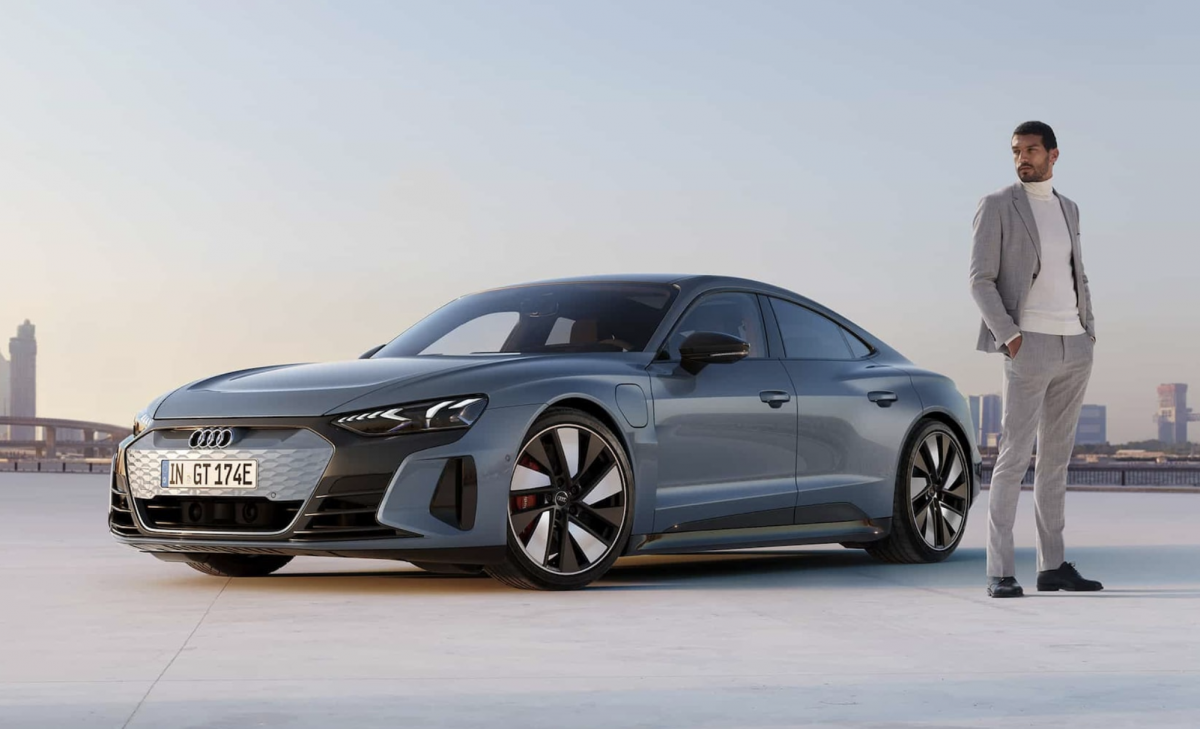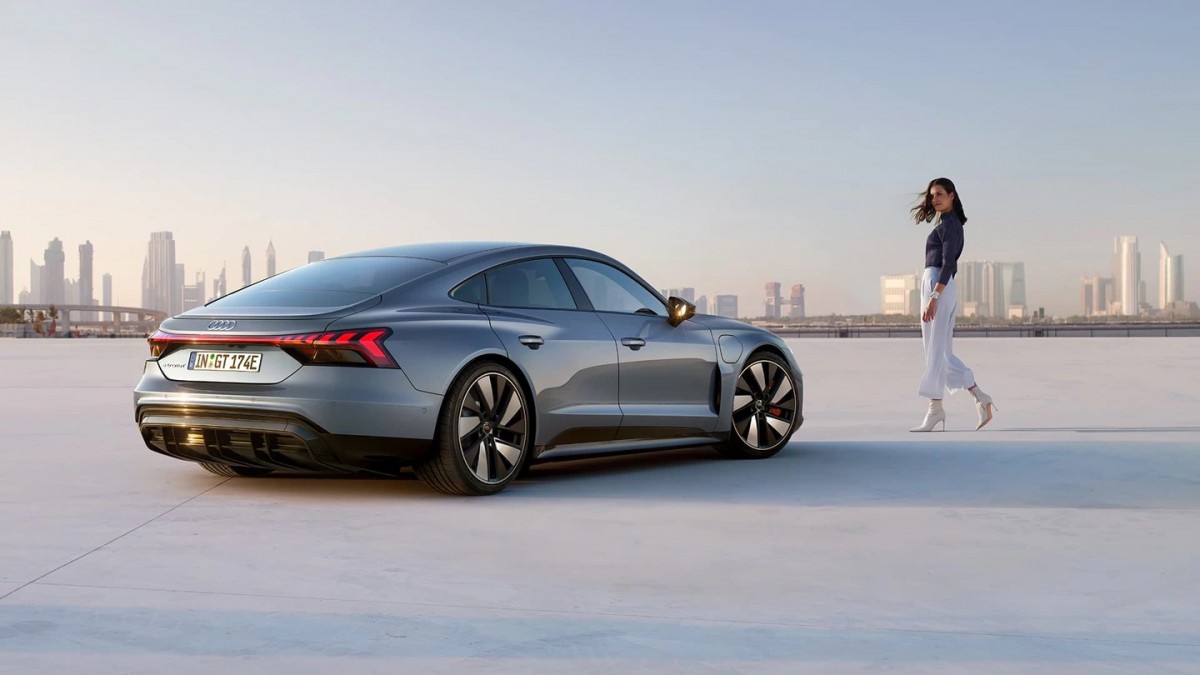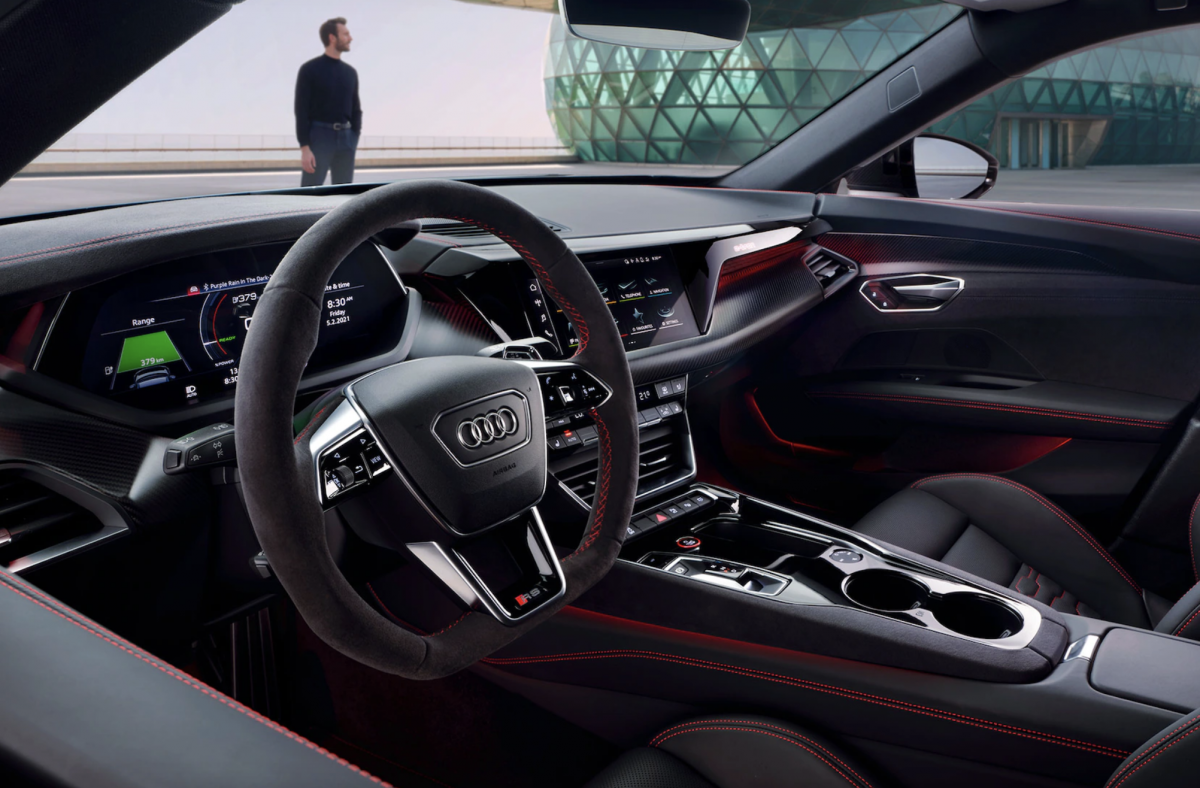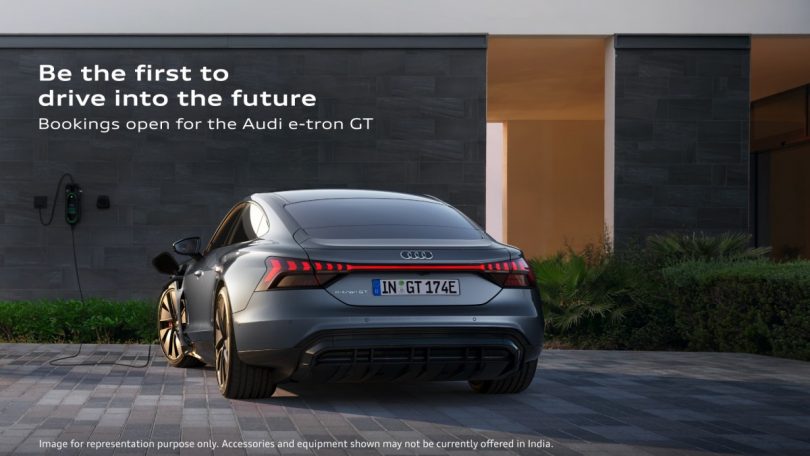Audi has commenced accepting bookings for the Audi e-tron GT in the Indian market. The brand has officially announced the commencement of bookings on the official social media page. Audi has also updated the official website in India, where customers can now register their interests. Audi will soon launch the e-tron GT in India. The brand has also listed the Audi RS e-tron GT, a sportier version of the electric vehicle, on the official website. We speculate that the German brand will also launch the RS e-tron GT in India, followed by the introduction of the standard e-tron GT.
Audi e-tron GT – Desing Highlights
The Audi e-tron GT comes with the brand’s latest e-tron electric concept design language. The electric vehicle features a hallmark single-frame blank-out grille with a wide air dam and aero ducts that flank the front bumper. The fascia also features sleek Audi laser headlamps and LED DRLs. The e-tron GT comes with a progressive roofline that ends far into the rear deck, offering a coupe-esque look. The Audi e-tron GT also comes with aerodynamically optimised shapes and intelligent air inlets. The car also gets vented wheel arches. The Audi e-tron GT also comes with individual V-shaped LED taillamp segments that form a wide taillamp.
Audi e-tron GT – Interior Features
The Audi e-tron GT comes with interior features such as a multilayered dashboard and the highest quality trim elements. The car features an Alcantara-wrapped flat-bottomed steering wheel with controls. The e-tron GT also comes with a central touchscreen infotainment system and a full-colour digital cockpit. The electric vehicle also features a bridge-like transmission tunnel with a drive select button.
Audi e-tron GT – Powertrain
Powering the Audi e-tron GT is a 350 kW electric motor that produces 630 Nm of torque. The electric motor is capable of pushing the car from 0-100 kmph in just 4.1 seconds. The brand also claims a range of 500 km according to the WLTP test cycle. The car features an 800V 83.7 kWh battery pack that charges in 22.5 mins on a 270 kW DC charging station.
Also Read: Audi RS Q e-tron starts testing for 2022 Dakar Rally





